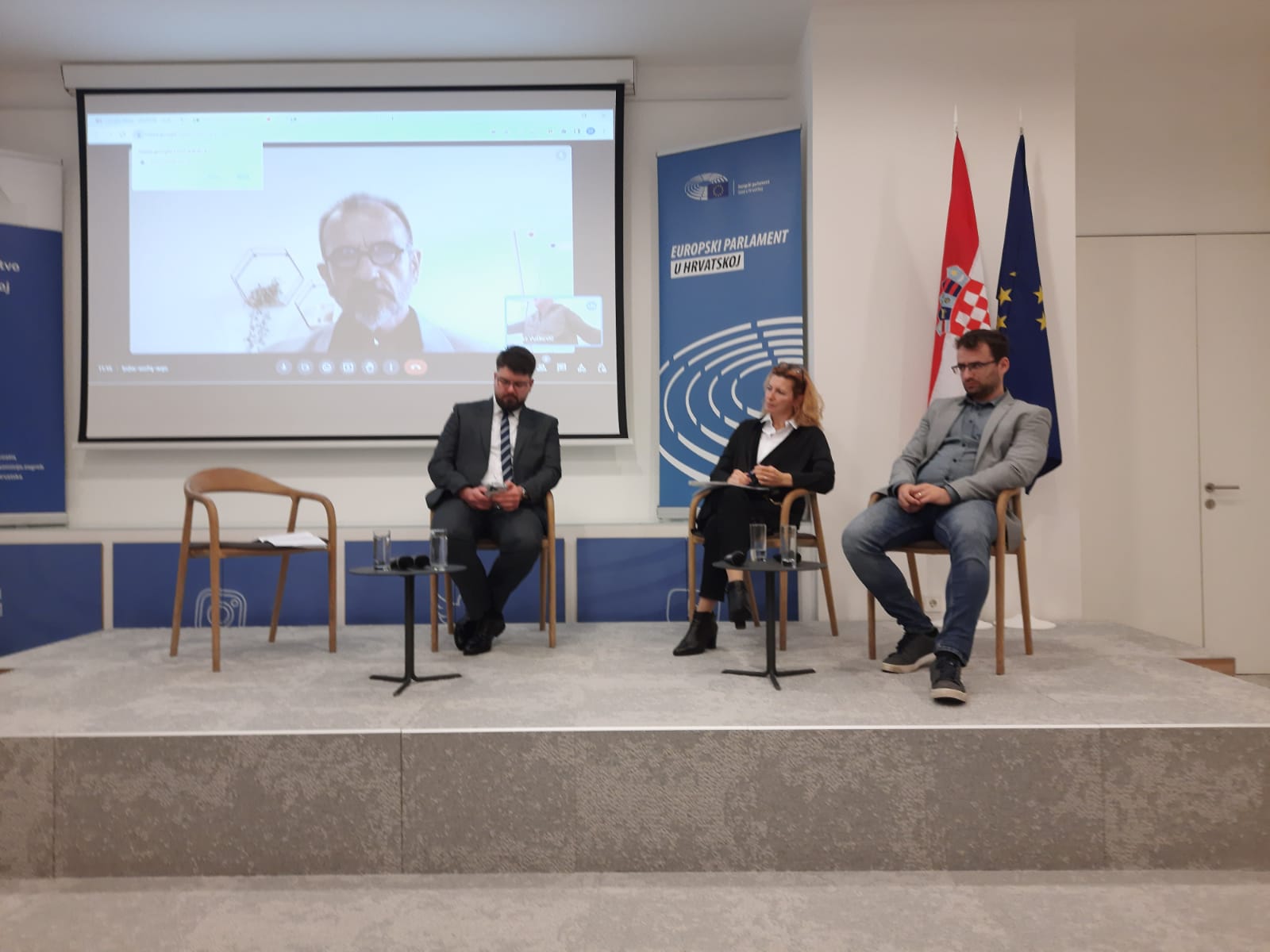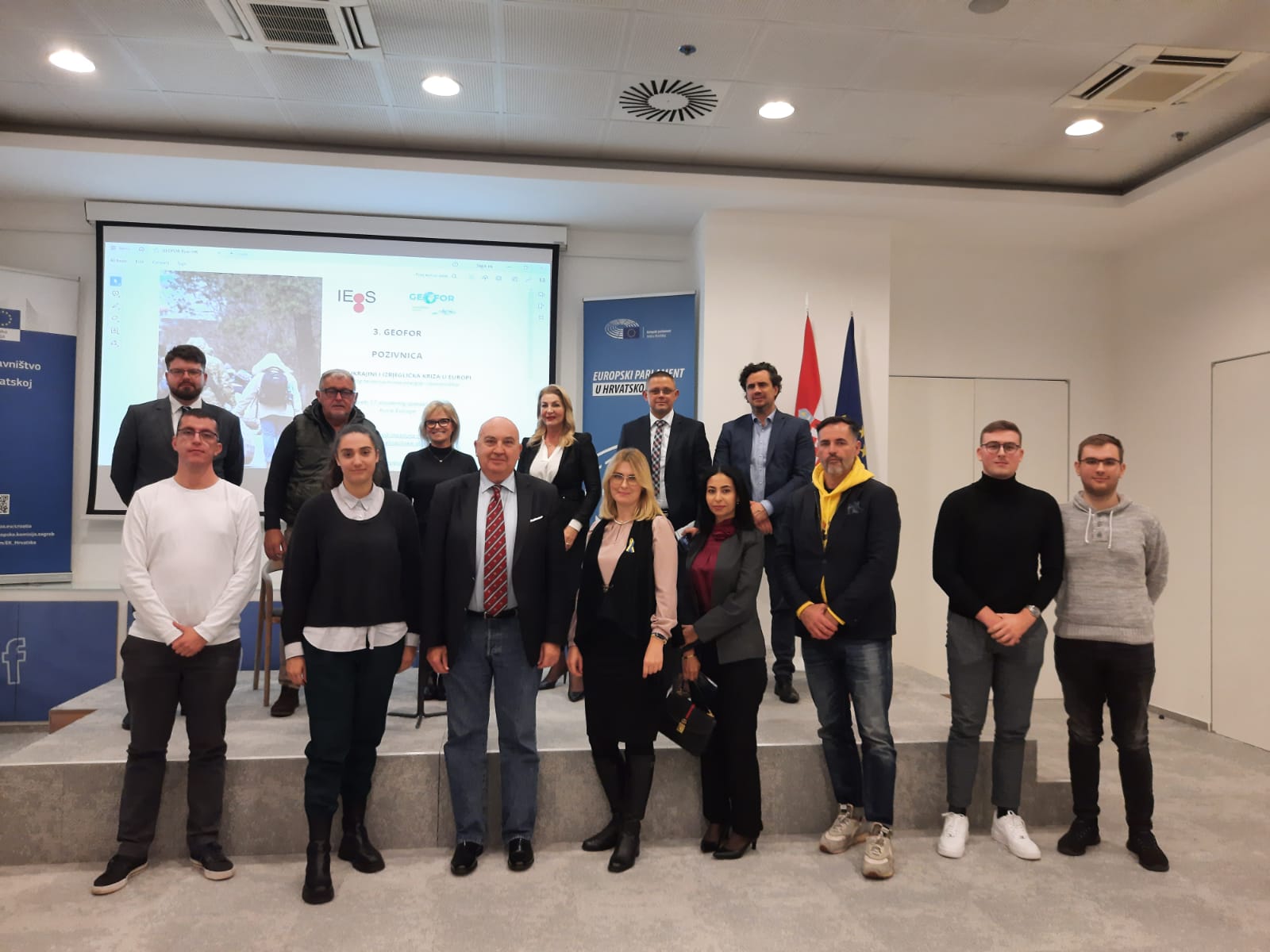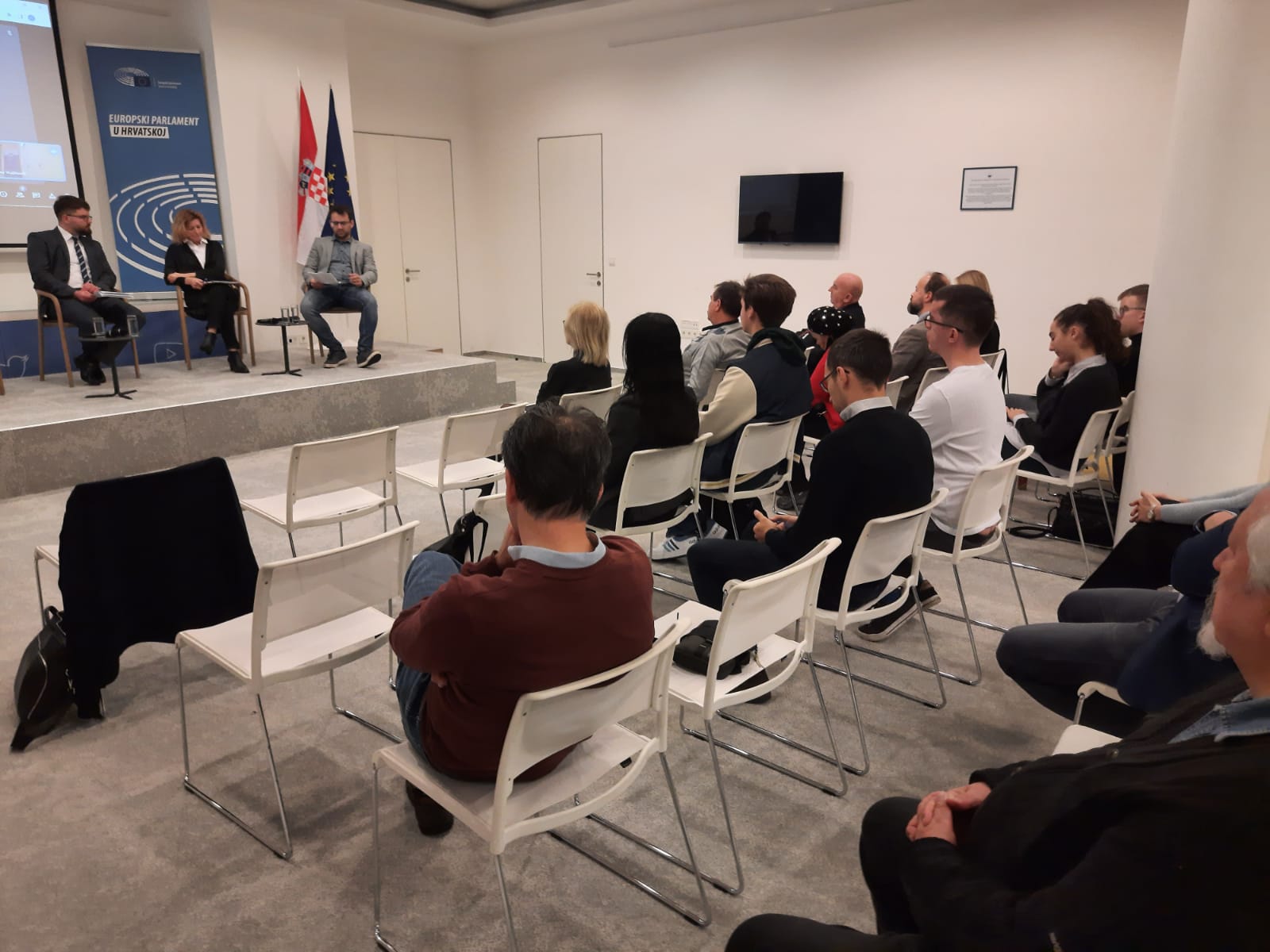Četvrti geostrateški forum - GEOFOR
Svijet između starog bipolarizma i nadolazećeg multipolarizma
Zagreb, 14. studenog 2024., Kuća Europe
U organizaciji Instituta za europske i globalizacijske studije, digitalni think tank
ORGANIZATOR
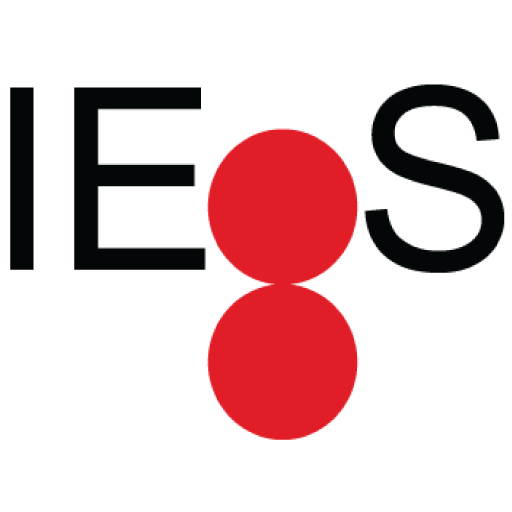
Institut za europske i globalizacijske studije
PARTNERI
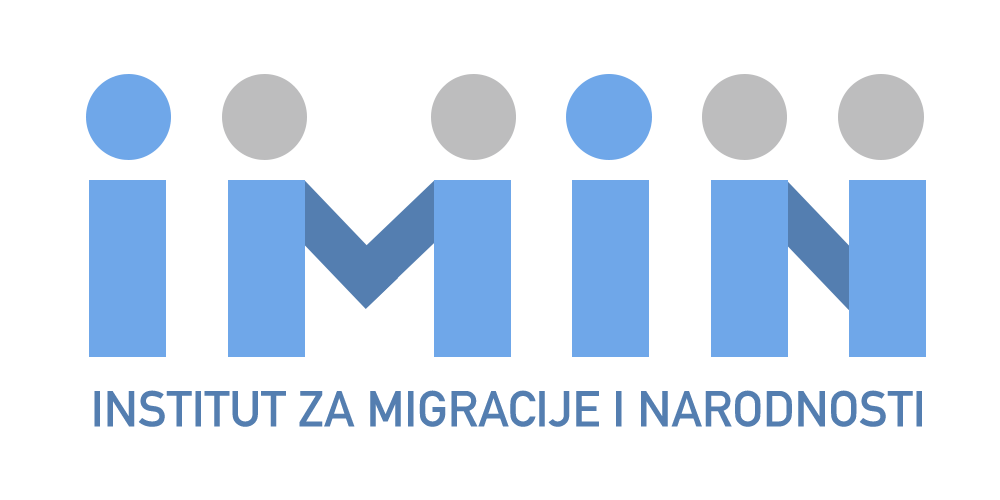

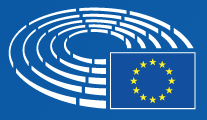
GEOFOR 2024.
Određenje, koncept i ciljevi Foruma
Određenje
Geostrateški forum utemeljen je u Zagrebu 2020. godine s ciljem da analizira i konceptualizira rezultate Mediteranskog poljoprivrednog foruma, Foruma ICT i društvo te Međunarodnog energetskog foruma u kontekstu geopolitike te tako dodatno artikulira predstavljene javne politike u kontekstu nove društvene paradigme u globalnom društvu rizika. Geostrateški forum se temelji na dosadašnjim rezultatima IEGS-a.
Koncept
Geostrateški forum polazi od pretpostavke da je u tijeku rekonstrukcija stare geopolitički slike svijeta te shodno tome pokušaj uspostavljanja nove. U okviru nove geopolitičke slike svijeta s početka 21. stoljeća doći će do novog/drugačijeg pozicioniranja EU u odnosu na SAD, Kinu i Rusiju. U tom kontekstu Geostrateški forum je mjesto rasprava i analiza novog koncepta multipolarnosti u svijetu. U okvirima nove geopolitičke slike svijeta fokus je na populaciji, hrani, energiji i ICT tehnologiji, klimatskim promjenama kontekstu globalnog društva rizika.
Ciljevi
Promovirati značenje geostrategije / geopolitike u kontekstu nove društvene paradigme, kako unutar akademskog sektora tako i šire javnosti, s posebnim naglaskom na javni i državni sektor. Forum pruža jasne i artikulirane koncepte i rješenja problema koja se tiču javnih politika IT-a, energetike i mediteranske poljoprivrede, kako na lokalnoj i regionalnoj tako i na međunarodnoj razini. Geostrateški forum polazi od pretpostavke identificiranja ključnih pitanja te pruža okvir za politički neovisne rasprave o javnim politikama, strateškim i sigurnosnim trendovima u geopolitici 21. stoljeća determiniranoj različitim rizicima. Sintetiziranje i analiziranje prijedloga javnih politika ostalih foruma s pozicije geopolitike.
Prve godine, a sada već možemo govoriti i desetljeća, 21. stoljeća pokazali su nam kako geopolitika doživljava veliki povratak u našu stvarnost. Nakon jednopolarnog zareza prvih godina poslije pada Berlinskog zida, događaji ovog stoljeća redali su se jedan za drugim kao katalizatori i nagovještaji promjene geopolitičke epohe i poretka u kojem živimo. Vrhunac tih promjena doživjeli smo u događajima pandemije COVID-19 i ruske agresije na Ukrajinu. Time smo, po tko zna koji put, dobili potvrdu da je društvena i stvarnosna paradigma promijenjena i da se nalazimo u društvu (permanentnih) rizika.
Iz navedenoga možemo zaključiti kako je poznavanje, tumačenje i proaktivno djelovanje na geopolitičke procese temelj, ali i vrhunac uvida u stvarnost. Pogotovo bi to trebalo biti tako iz perspektive onih na poziciji vlasti. Jer, kako kaže Émile de Girardin, „Vladati znači predvidjeti, a ništa ne predvidjeti znači srljati u propast.“
Geopolitika sadašnjeg trenutka nam ponovno pokazuje, parafrazirajući Winstona Churchilla, kako vidimo to dalje u budućnost, što se dalje zagledamo u prošlost. Žrtve smo, nietzscheovski rečeno, vječnog vraćanja istog, povratka u geopolitiku 19. stoljeća, u kojoj se velike nacionalne države, ovog puta okupljene oko velikih civilizacijsko-prostornih osi, bore za svoje interesne sfere. Upravo se radi toga geopolitika nameće kao ključ razumijevanja procesa koji se ne odvijaju samo ovdje i sada, već imaju svoj povijesni hod, transhistorijski su.
S tim na umu, i treće izdanje geopolitičkog foruma bavit će se aktualnim pitanjima ukrajinskog sukoba, njegovim uzrocima, posljedicama, te će nastojati dati interpretativni okvir koji će poslužiti ne samo za razumijevanje, već i za djelovanje po pitanju trenutnih geopolitičkih silnica i njihovih posljedica.
Govornici
Prvi panel
Geopolitika rata u Ukrajini i izbjeglička kriza: uzroci i posljedice
Moderatorica: Ana Jerković, IEGS

Ana Jerković je ekonomistica i potpredsjednica hrvatskog ogranka Pugwash Conferences on Science and World Affairs, suradna članica Svjetske akademije umjetnosti i znanosti, članica hrvatskog ogranka Rimskog kluba, koordinatorica Hrvatskoga foruma Europske akademije znanosti i umjetnosti. Trenutno radi u Ministarstvu vanjskih i europskih poslova, a radila je i u Ministarstvu znanosti i obrazovanja te Ministarstvu regionalnoga razvoja i fondova Europske unije. Autorica je brojnih nacionalnih i međunarodnih projekata, inicijativa, konferencija i tribina, a svoj rad usmjerava na područja globalizacije, međunarodnih odnosa, mirovnih i sigurnosnih politika, diplomacije, obrazovanja i znanosti.
– Panelisti:
– Mr.sc. Davor Dijanović, geopolitički analitičar i publicist
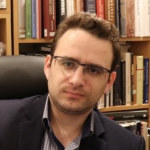
Davor Dijanović hrvatski je novinar, urednik, kolumnist, povijesni istraživač, geopolitički analitičar i publicist. Rodio se je u Bjelovaru 1987. godine. Od 2008. do danas objavio je više od tisuću članaka, eseja i književnih prikaza o temama iz područja politike, geopolitike, povijesti i kulture. Kao novinar napravio je nekoliko stotina razgovora s uglednim osobama iz hrvatskoga političkog i kulturnog života. Moderirao i izlagao na velikom broju tribina, predavanja i književnih večeri. Član je Hrvatskih novinara i publicista, Hrvatskoga kulturnog vijeća, Udruge Obnova i Matice hrvatske.
– Dr.sc. Tonći Prodan, Sveučilište u Splitu – Sveučilišni odjel za forenzične znanosti

Doktorirao je komparativnu politiku na Fakultetu političkih znanosti Sveučilišta u Zagrebu. Docent je na Sveučilišnom Odjelu za forenzične znanosti u Splitu i zamjenik voditelja studijskog modula Forenzika i nacionalne sigurnosti. Suradnik je i predavač na Visokoj školi za sigurnost u Zagrebu koja (dio SSBM Geneva) te nekoliko drugih visokoškolskih ustanova u Hrvatskoj. Sudjelovao je u izradi aktualne hrvatske Nacionalne strategije za prevenciju i suzbijanje terorizma. Dugogodišnji je član Međunarodnog policijskog udruženja IPA, Hrvatsko-Poljske znanstvene mreže, Hrvatskog ceha zaštitara te Odbora za pomorsku i sigurnost luka Konfederacije europskih sigurnosnih službi (CoESS) sa sjedištem u Bruxellesu.
– Dr.sc. Snježana Gregurović, Institut za migracije i narodnosti

Diplomirala sociologiju na Filozofskom fakultetu u Zagrebu 1997. Magistrirala sociologiju na Filozofskom fakultetu u Zagrebu 2005. Doktorirala sociologiju na Filozofskom fakultetu u Zagrebu 2010. s temom „Položaj i integracija novih imigrantskih grupa u južnoeuropskim i srednjoistočnoeuropskim zemljama članicama Europske unije”.
Zaposlena je na Institutu za migracije i narodnosti kao Viša znanstvena suradnica.
Drugi panel
Sigurnosna arhitektura Europe i svijeta nakon okončanja rusko-ukrajinskog sukoba
Moderator: Mislav Vušković, Institut za europske i globalizacijske studije

Mislav Vušković diplomirani je anglist i talijanist. Od 2021. član Instituta za europske i globalizacijske studije u sklopu kojeg je sudjelovao na više Foruma kao moderator i suradnik. Od 2023. voditelj je GEOFOR-a.
Panelisti:
– Mr.sc. Krševan Antun Dujmović, Institut za razvoj i međunarodne odnose
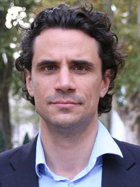
Krševan Antun Dujmović diplomirao je povijest na Hrvatskim studijima Sveučilišta u Zagrebu 2003. godine, te završio na Fakultetu političkih znanosti Sveučilišta u Zagrebu poslijediplomski znanstveni studij za stjecanje magisterija znanosti. Po završetku studija Dujmović je radio u Ministarstvu vanjskih i europskih poslova i Savezu samostalnih sindikata Hrvatske, baveći se pitanjima europskih integracija. 2006. Dujmović se zaposlio na Institutu za razvoj i međunarodne odnose kao viši stručni suradnik u sustavu znanosti u Europskom dokumentacijskom centru – EDC. Njegova područja interesa uključuju: EU komunikacijsku strategiju i politiku informiranja, proširenje EU i pristupanje zapadnog Balkana, EU fondovi i regionalni razvoj, civilno društvo i suradnja sa zemljama Azije. Od 2014. godine Dujmović je član Royal Institute of International Affairs (Chatham House) iz Londona, UK.
– Dr.sc. Jadranka Polović, Libertas međunarodno sveučilište

Fakultet međunarodnih odnosa i diplomacije na Libertas na Međunarodnom sveučilištu u Zagrebu. Predsjednica je Hrvatske udruge za međunarodne studije (HUMS) i ekspertica za međunarodnu politiku. Suradnica je Instituta za europske globalizacijske studije i portala Geopolitika News, te geopolitička analitičarka za brojne hrvatske medije.
– Prof.dr.sc. Mirza Smajić, Univerzitet u Sarajevu – Fakultet političkih nauka

Rođen 1981. godine u Sarajevu. Diplomirao, magistrirao i doktorirao na Fakultetu političkih nauka u Sarajevu (Odsjek odbrana i sigurnost). Na Fakultetu političkih nauka Univerziteta u Sarajevu zaposlen u zvanju izvanrednog profesora. Stalni je predavač na smjeru “Sigurnosna politika BiH” u organizaciji Misije OSCE-a u BiH i Ministarstva sigurnosti BiH. Angažiran je kao konzultant od strane brojnih organizacija (Misija OSCE-a u Bosni i Hercegovini).
Znanstvena područja kojima se bavi su: sigurnosne studije, humana sigurnost, unutrašnja sigurnost i studije provedbe zakona i policije. U svojstvu autora ili koautora objavio četiri knjige i studije, odnosno više stručnih i znanstvenih radova koji su objavljeni u BiH i inozemstvu. Kao istraživač ili konzultant je sudjelovao u većem broju znanstvenih kongresa i projekata u BiH, Srbiji i Hrvatskoj.
Riječ voditelja Foruma

Ukrajinski sukob, tj. ruska agresija na Ukrajinu događaj je od epohalne važnosti. Njegova prijelomnost ne proizlazi samo iz šoka i čuđenja zbog novog rata na europskom tlu, već prije svega iz toga da je riječ o konkretnoj, bolno opipljivoj manifestaciji promjene geopolitičke paradigme i poretka.
Ta promjena je na poseban način bolna i otrežnjujuća za Europu i Europsku uniju. Ako geopolitiku slobodno definiramo i shvatimo kao projekciju shvaćanja nužnosti vlastitog identiteta u povijesnom vremenu i prostoru u kombinaciji s trenutnim okolnostima i povijesnim konstantama, vidimo da Europa tu nažalost nema što raditi.
Europa je nakon Drugog svjetskog rata svjesno odustala od svoje uloge kao aktera u povijesnim procesima, te je tu brigu prenijela na SAD. Proces europskih integracija i protok vremena učinili su svoje i Europa je prestala biti sposobna za povijesno mišljenje; neke stvari, među kojima i rat na europskom tlu, postali su nezamislivi. Izvana zaštićena sigurnosnim kišobranom SAD-a, a iznutra isprepletena integracijskim procesima, Europa nije uočila nastanak nove geopolitičke paradigme, uzdizanja povijesnih nacionalnih država/civilizacija koje su, ukorijenivši se, pomirivši se i prihvativši svoju prošlost, sva njena svjetla i sjene – nešto što Europa nikada nije napravila – krenule u novi povijesni hod koji se najplastičnije ogleda u oživljenim pretenzijama na nove-stare teritorije, resurse i ljude.
Fokalna točka konkretne manifestacije svega navedenoga jest 24. veljače 2022., emblematski datum paradigmatskog geopolitičkog obrata.
Promatrajući fenomen kao dokaz nove društvene paradigme i društva rizika u kojem živimo, nadaju nam se tri aspekta sadašnjeg stanja koja se mogu formulirati kao tri pitanja:
- Zašto se sve to dogodilo?
- Što je s ljudima, žrtvama tog sukoba?
- Ako se to dogodilo u Ukrajini, može li se to ponoviti i drugdje? Može li se to dogoditi i nama?
Na ta pitanja, u nikada prikladnijem ambijentu Kuće Europe, odgovore će dati treće izdanje GEOFOR-a.
Rat u Ukrajini i izbjeglička kriza u Europi

Ukrajinski sukob, tj. ruska agresija na Ukrajinu događaj je od epohalne važnosti. Njegova prijelomnost ne proizlazi samo iz šoka i čuđenja zbog novog rata na europskom tlu, već prije svega iz toga da je riječ o konkretnoj, bolno opipljivoj manifestaciji promjene geopolitičke paradigme i poretka.
Ta promjena je na poseban način bolna i otrežnjujuća za Europu i Europsku uniju. Ako geopolitiku slobodno definiramo i shvatimo kao projekciju shvaćanja nužnosti vlastitog identiteta u povijesnom vremenu i prostoru u kombinaciji s trenutnim okolnostima i povijesnim konstantama, vidimo da Europa tu nažalost nema što raditi.
Europa je nakon Drugog svjetskog rata svjesno odustala od svoje uloge kao aktera u povijesnim procesima, te je tu brigu prenijela na SAD. Proces europskih integracija i protok vremena učinili su svoje i Europa je prestala biti sposobna za povijesno mišljenje; neke stvari, među kojima i rat na europskom tlu, postali su nezamislivi. Izvana zaštićena sigurnosnim kišobranom SAD-a, a iznutra isprepletena integracijskim procesima, Europa nije uočila nastanak nove geopolitičke paradigme, uzdizanja povijesnih nacionalnih država/civilizacija koje su, ukorijenivši se, pomirivši se i prihvativši svoju prošlost, sva njena svjetla i sjene – nešto što Europa nikada nije napravila – krenule u novi povijesni hod koji se najplastičnije ogleda u oživljenim pretenzijama na nove-stare teritorije, resurse i ljude.
Fokalna točka konkretne manifestacije svega navedenoga jest 24. veljače 2022., emblematski datum paradigmatskog geopolitičkog obrata.
Promatrajući fenomen kao dokaz nove društvene paradigme i društva rizika u kojem živimo, nadaju nam se tri aspekta sadašnjeg stanja koja se mogu formulirati kao tri pitanja:
- Zašto se sve to dogodilo?
- Što je s ljudima, žrtvama tog sukoba?
- Ako se to dogodilo u Ukrajini, može li se to ponoviti i drugdje? Može li se to dogoditi i nama?
Na ta pitanja, u nikada prikladnijem ambijentu Kuće Europe, odgovore će dati treće izdanje GEOFOR-a.
Rat u Ukrajini i izbjeglička kriza u Europi
